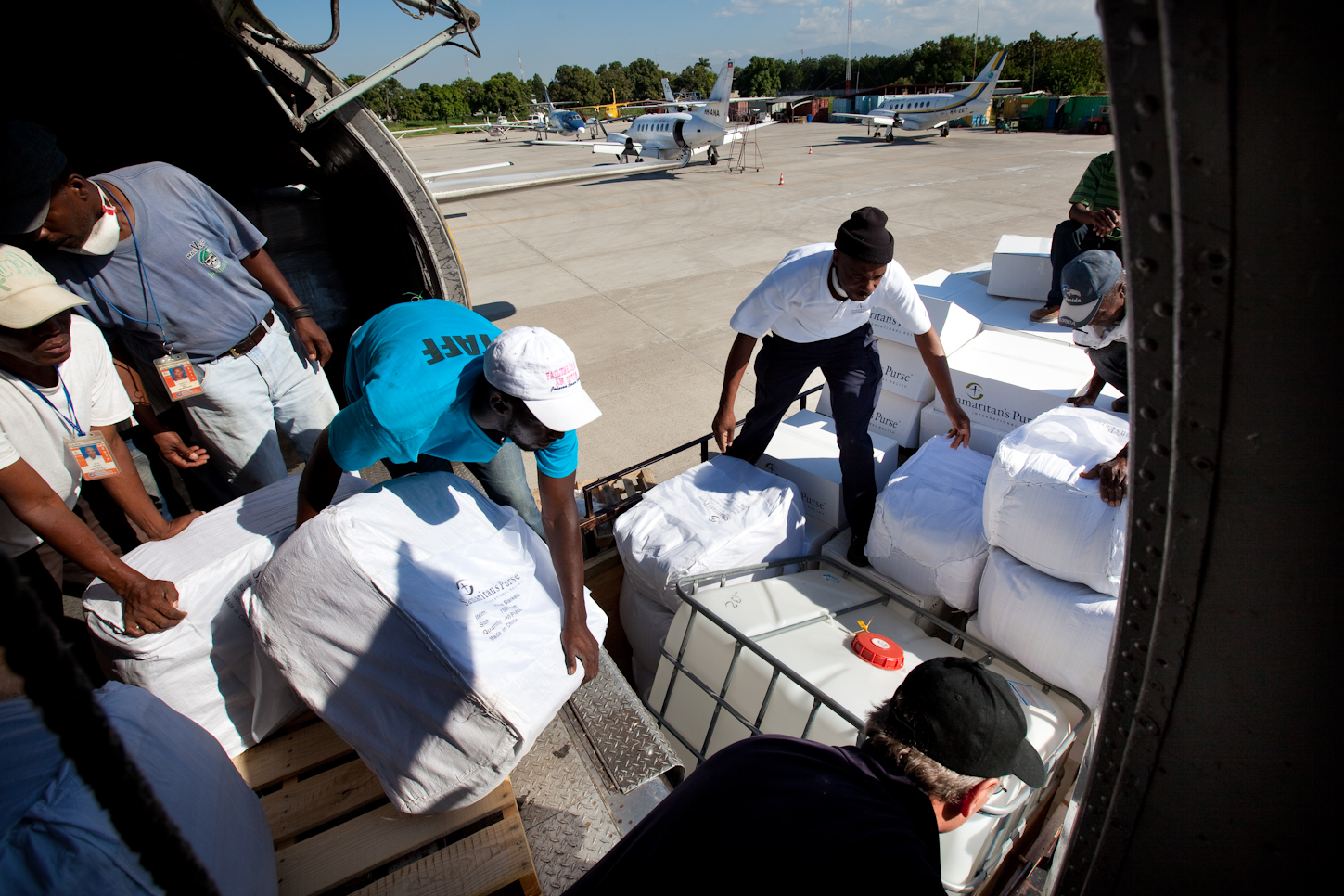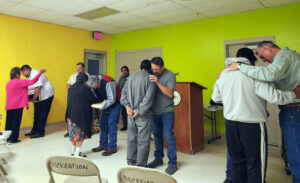
NASHVILLE, Tenn. (BP)–In the wake of the worst earthquake Haiti has seen in more than 200 years, a Southern Baptist assessment team is on the ground and headed into the country, looking for ways to provide both immediate and long-term help to the people of that impoverished country.
Pockets of violence and looting are hindering the delivery of relief supplies in Port-au-Prince, according to news reports. The city’s port remains blocked; food, water and other supplies are being distributed from the airport in larger but still inadequate amounts. Tens of thousands of survivors are sleeping in the streets and makeshift outdoor camps. The European Commission estimates 1.5 million people are homeless a week after the 7.0 earthquake.
The Haitian government now estimates 200,000 people have died and about 70,000 bodies have been buried in mass graves.
The five-member assessment team landed in the Dominican Republic Jan. 18 and currently is driving to Haiti to survey the situation and develop a strategic response. A separate Florida Baptist assessment team already is on the ground in Haiti, and a team of Southern Baptist missionaries is helping at a medical clinic in Jimani, Dominican Republic, on the border with Haiti. A seven-member medical team from North Carolina Baptist Men also is in Haiti and another 10-member team from the state left Jan. 19.
“The initial response will be fast and furious in order to save lives and reduce the impact of the disaster,” said Jeff Palmer, executive director of Baptist Global Response. “However, be ready for the long haul. This is a huge disaster that will require years of attention. Our heart is for the long-term, transformational impact after basic needs are met.”
Jim Brown, U.S. director for Baptist Global Response, reported the assessment team is traveling in a three-vehicle caravan. The team – encompassing representatives from Baptist Global Response, North American Mission Board and disaster relief specialists from Kentucky, Mississippi and South Carolina — hopes to make contact with Adam Hammond, International Mission Board strategy leader for Central America and the Caribbean, and try to link up with leaders of the five Baptist conventions in Haiti.
The first priority of the assessment is to coordinate with local Baptist partners and other organizations and establish supply lines for water, food and temporary housing supplies, Brown said. Baptist Global Response then will report back to disaster relief directors of the Baptist state conventions about an overall coordinated strategy for both short-term response and mid-to-long-term rehabilitation and recovery.
“We maximize our impact by good assessment, good local partnerships, and by bringing a spiritual component and biblical worldview into the response,” Palmer noted.
With a plan in place, volunteers may be able to enter Haiti as early as Jan. 25 to begin clean-up, distribution of supplies, temporary and permanent reconstruction, medical care and counseling, Palmer said. Later, educational and microenterprise teams will be needed to help the Haitian people resume their lives and work.
Southern Baptists are uniquely equipped to offer relief at this time, Palmer said.
“We have people who care and are willing to go and become personally involved in the lives of those affected and recovering, pre-existing people on the ground who allow us to give a quick response, a mechanism to release funds and resources to an event like this quickly, and a heart for ministering to the spiritual needs that arise,” Palmer noted.
Until volunteers are able to enter the country, the relief effort will be best helped through financial contributions, Brown added. All donations will go 100 percent to relief operations conducted in partnership with local Baptist churches, while operational costs for responses will be met through other channels. An initial $150,000 has been released from the Southern Baptist disaster relief fund but the total cost of relief efforts is expected to be much higher.
“BGR is working with the best partners and resources to come up with the best response,” Palmer said. “This is a great cooperative effort that is the hallmark of Southern Baptist life.”
–30–
Jack Caulfield is an international correspondent for Baptist Global Response, is located on the Internet at www.gobgr.org.
Southern Baptists can contribute to “Haiti Earthquake Disaster Relief” through their local church or directly to their state convention, the North American Mission Board (www.namb.net) or the International Mission Board (www.imb.org):
— Initial funding for the relief effort will come from the International Mission Board’s disaster relief fund. Contributions can be made online, www.imb.org, or by mail, International Mission Board, P.O. Box 6767, Richmond, VA 23230.
— The North American Mission Board has set up a Haiti disaster relief fund that will direct money to state conventions and other Southern Baptists who are doing relief work in Haiti. Donations may be made online, www.NAMB.net, by phone, 1-866-407-6262, or by mail, North American Mission Board, P.O. Box 116543, Atlanta, GA 30368-6543. Make checks payable to “Haiti Disaster Relief Fund/NAMB.”
Regardless of the SBC channel, all funds received for this purpose will go to relief efforts; none will be used for administrative costs.

















